WOW
You are using an out of date browser. It may not display this or other websites correctly.
You should upgrade or use an alternative browser.
You should upgrade or use an alternative browser.
India as a future super power? 🇮🇳
- Thread starter ☑︎#VoteDemocrat
- Start date
More options
Who Replied?
India points the way to digital access across Africa
Bill Gates is among the supporters who say DPI is key to reducing poverty but critics warn civil liberties could be at risk
 www.ft.com
www.ft.com
India points the way to digital access across Africa
Bill Gates is among the supporters who say DPI is key to reducing poverty but critics warn civil liberties could be at risk
An Indian woman getting her fingerprints read during the registration process for Aadhaar cards
Biometric ID: a woman in India has her fingerprints read during the registration process for an Aadhaar card © Narinder Nanu/AFP via Getty Images
The so-called India Stack — a public digital highway that enables payments and biometric identification — has transformed the lives of millions of Indians, according to its advocates. Now, this kind of digital public infrastructure, or DPI, is being held up as model for other countries seeking to boost economic growth, and meet sustainable development goals.
Since its rollout over the past decade, the India Stack has been credited with squeezing corruption, increasing tax efficiency and empowering citizens previously excluded from formal health, education or banking systems.
Thanks to its open-source digital infrastructure, the government and private companies have been able to build apps, verify the identity of citizens, and transfer payments and private data. Nearly every adult in India now has a 12-digit biometric identity, known as Aadhaar, enabling them to access services.
The UN has already recognised the role of the India Stack in helping the government deal with the Covid crisis, as well as promoting development. “DPI can accelerate global economic growth, support the transition to sustainable and green economies, and grow accessibility and public trust in institutions,” it said in a report last month. The World Bank has also targeted loans at improving digital infrastructure.
Supporters of DPI say its wide scale adoption could have a similar effect on an entire continent: Africa. Bill Gates, co-founder of Microsoft, who co-chairs the Bill & Melinda Gates Foundation, is among those who argue DPI is the key to unlocking growth and meeting poverty-reduction targets across many of the 54 African countries.
“Digitising things reduces overheads massively and it does it in a pro-equity way,” he tells the Financial Times in an interview, shortly after a trip to Nigeria in which he advocated rollout of DPI.
Its adoption could bring tens of millions of people into the financial system and improve state competence, he says.
DPI is particularly beneficial to rural women excluded from formal banking, he says. “The ideal is for a woman to have her own savings account. There’s lots of data [showing] money will go less to consumption, including on alcohol, and more on school fees and saving.”
In Africa, Gates says, making payments directly to people could also help reduce corruption, particularly in the distribution of direct payments to targeted individuals. This is an approach being considered, for example, in Nigeria, as a way of softening the blow of the recent removal of the petrol subsidy.
“Leakage in the system has gone down very dramatically,” Gates says of the Indian experience, which he believes could be replicated in countries such as Nigeria. “With [old] cash payment systems, the cash would show up and the big man in the village would get his piece. Now he can’t get that because it’s going on to her phone directly.” The Bill & Melinda Gates Foundation has committed $200mn over five years to promote digital public infrastructure.
In some ways, many countries in Africa have been early adopters of digital technologies. Nigeria, which had a rudimentary fixed-line telephone system, went straight to mobile. Kenya was a pioneer in mobile payments with the M-Pesa phone-to-phone money transfer system, launched in 2007 and emulated, with greater or lesser success, around the continent.
Some 20 African countries have nationwide digital payment systems, with a further 18 in the process of implementation, according to AfricaNenda, a Kenyan NGO supported by the Gates Foundation.
But, in important ways, Africa has lagged behind. That is especially the case with digital ID. According to the World Bank, an estimated 470mn people in sub-Saharan Africa lack any form of official identification at all.
Arun Kumar Gurumurthy, head of strategy at MOSIP, an open source ID group spun out of International Institute of Information Technology, Bengaluru, says “digital can be a public good”. Gurumurthy has advised governments in Ethiopia, Morocco, Sierra Leone, Guinea and Togo on rolling out their own national identification systems. He says the MOSIP ID platform helped the Philippines — an early adopter — and Togo to better target emergency payments during the pandemic directly to people’s accounts.
Other proponents of DPI include Ghana’s vice-president Mahamudu Bawumia, who has led efforts to digitalise services and digitally map residencies. Governments, he argues, are not able to serve their people if they do not know who they are. “Countries that fail to digitalise their economies are likely to be uncompetitive,” he says.
Some critics strike a note of caution, though, arguing that it is dangerous if authoritarian governments know too much about their citizens.
While India’s DPI has pulled unprecedented numbers of people online, it has also brought warnings about the potential for misuse of personal data by state institutions and companies. India has also suffered a string of mass data breaches involving Aadhaar.
Nanjala Nyabola, a Kenyan author, whose book Digital Democracy, Analogue Politics questions the prioritising of technology, says platforms reflect the values of the governments implementing them. “Digital identity systems will only make governments more efficient at what they are already doing,” she argues, noting that digital IDs could be used to suppress, or discriminate against, certain citizens.
Gates acknowledges that digital ID could be abused: “Anything that makes the state more effective is good for the things you like the state to do, and bad for the things you don’t like the state to do,” he says. But, he suggests that, in almost all cases, a competent government is better than an incompetent one.
“You can believe in anarchy and that there should not be a state,” he says. “But, if you believe in a state that should provide you education, and should let you vote and should give you health services, there’s got to be some notion of, ‘Who are my citizens and are they eligible for this benefit?’”
oh.
my.
god.
Canada. Goddamn.
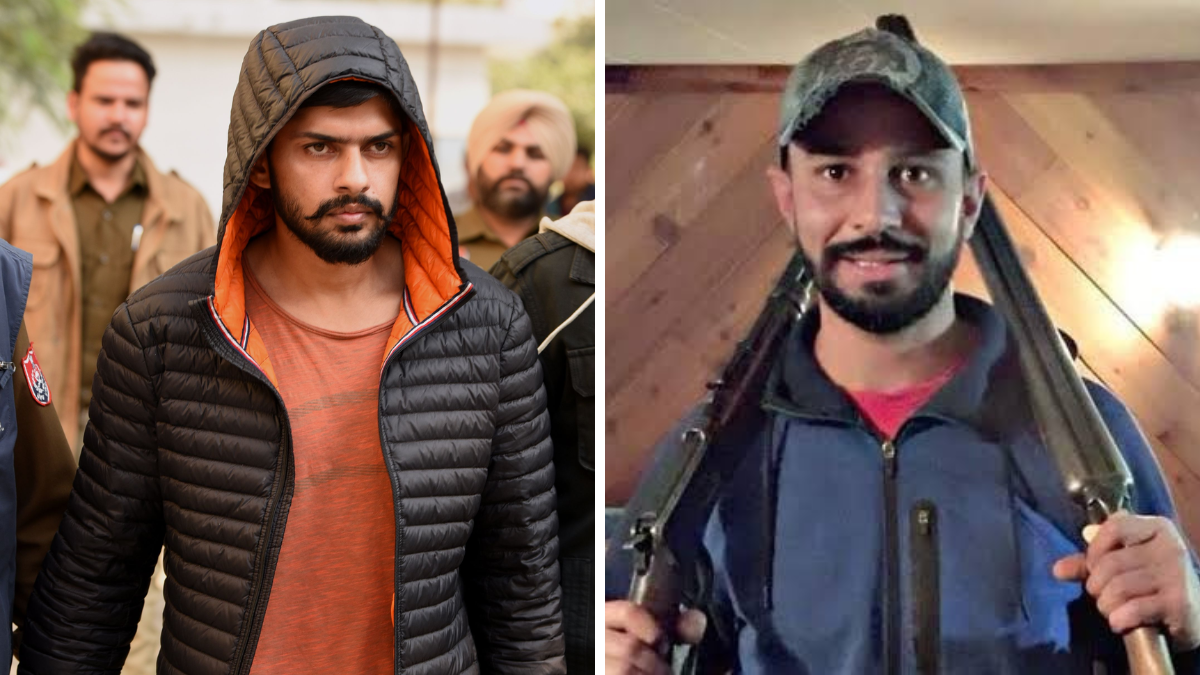
Gangster Lawrence Bishnoi claims responsibility for Khalistani terrorist Sukhdool Singh's killing
Many media reports are comparing his death to the killing of terrorist Hardeep Singh Nijjar who was also gunned down in a similar fashion in Surrey on June 18
/wion/media/agency_attachments/2024/12/13/2024-12-13t071602220z-wionfavicom.webp) www.wionews.com
www.wionews.com

Sukhdool Singh Killed: Khalistan terrorist Sukha Duneke shot dead in gang-war in Canada | India News - Times of India
India News: NEW DELHI: Gangster-turned-terrorist Sukhdool Singh alias Sukha Duneke was allegedly bumped off by unidentified gunmen in Canada on Wednesday, intelli.
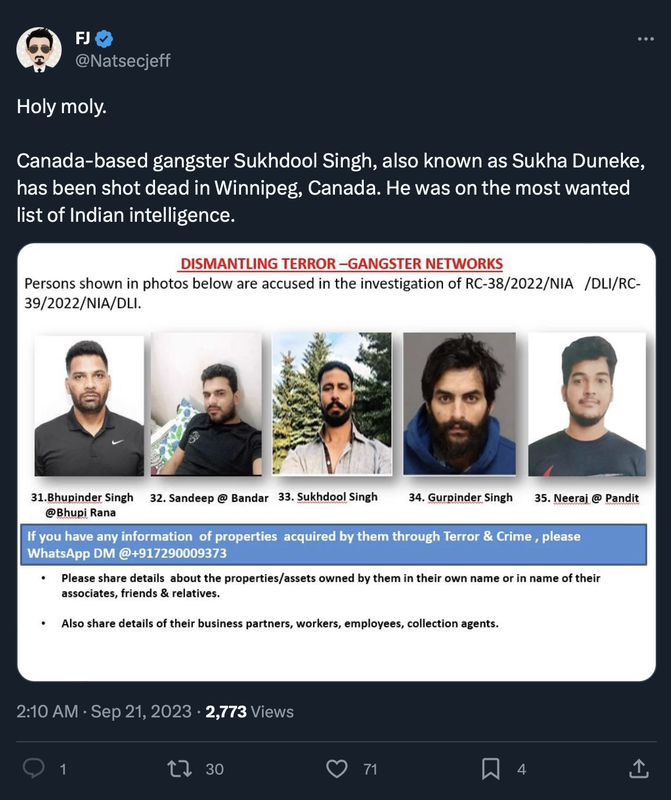

Well damn, he said it
UN Special Rapporteur Says ‘India Risks Becoming One of the Main Generators of Atrocities'

 m.thewire.in
m.thewire.in
One of the craziest things I've learned about Indian politics is that the Hindu Nationalist side WANTS conflict before every election, even if they're the ones blamed for causing it. In the USA, if White nationalists do something terrible, it hurts their cause. But in India, when Hindu Nationalists do something terrible, it actually helps their election chances cause other Hindus rally towards them. The opposition can only win if other issues are front and center. Whenever religion is front and center, no matter why, so many Hindus completely disregard the moral implications and just vote the most pro-hindu pariy. Every atrocity the Hindu Nationalists have committed helped them in the polls.
UN Special Rapporteur Says ‘India Risks Becoming One of the Main Generators of Atrocities'

UN Special Rapporteur Says ‘India Risks Becoming One of the Main Generators of Atrocities
At a USCIRF Hearing on Religious Freedom in India in Washington DC, there was talk of Manipur, Assam and discriminatory laws and processes for religious and other minorities and “a steady and alarming erosion of fundamental rights .
De Varennes said that “India risks becoming one of the world’s main generators of instability, atrocities and violence, because of the massive scale and gravity of the violations and abuses targeting mainly religious and other minorities such as Muslims, Christians, Sikhs and others. It is not just individual or local, it is systematic and a reflection of religious nationalism.”
The UN Special Rapporteur invoked Manipur several times, and the viral video of an incident on May 4, which shows a mob and two women disrobed and made to march on the road. Varennes said that two women “from the Christian Kuki community [were] being paraded naked, beaten and gang raped”. He said “there was inaction from authorities until this video caught the international attention”.
He cited Manipur as being “symptomatic of large-scale scapegoating and dehumanising of Muslims and religious ‘others’ that could lead to a slide towards horrific atrocities”. He cited a study which “noted a 786% increase in hate crimes against minorities between 2014 [the year the Modi government came to power] and 2018”.
De Varennes said, “With national elections scheduled for early 2024, there are concerns that the targeting of minorities, and human rights defenders will worsen. Indian authorities have not taken any tangible steps to hold perpetrators of abuses against minorities to account. Indian authorities have not engaged constructively with criticism, boasting instead of democratic values and the rule of law. Some senior leaders have either remained silent, or have indeed contributed, through their own rhetoric, to the hostile environment against religious minorities.”
One of the craziest things I've learned about Indian politics is that the Hindu Nationalist side WANTS conflict before every election, even if they're the ones blamed for causing it. In the USA, if White nationalists do something terrible, it hurts their cause. But in India, when Hindu Nationalists do something terrible, it actually helps their election chances cause other Hindus rally towards them. The opposition can only win if other issues are front and center. Whenever religion is front and center, no matter why, so many Hindus completely disregard the moral implications and just vote the most pro-hindu pariy. Every atrocity the Hindu Nationalists have committed helped them in the polls.
they're attacking christians too?...the west wont like that 

Canadian intelligence has been probing R&AW long before Nijjar case, suggests review
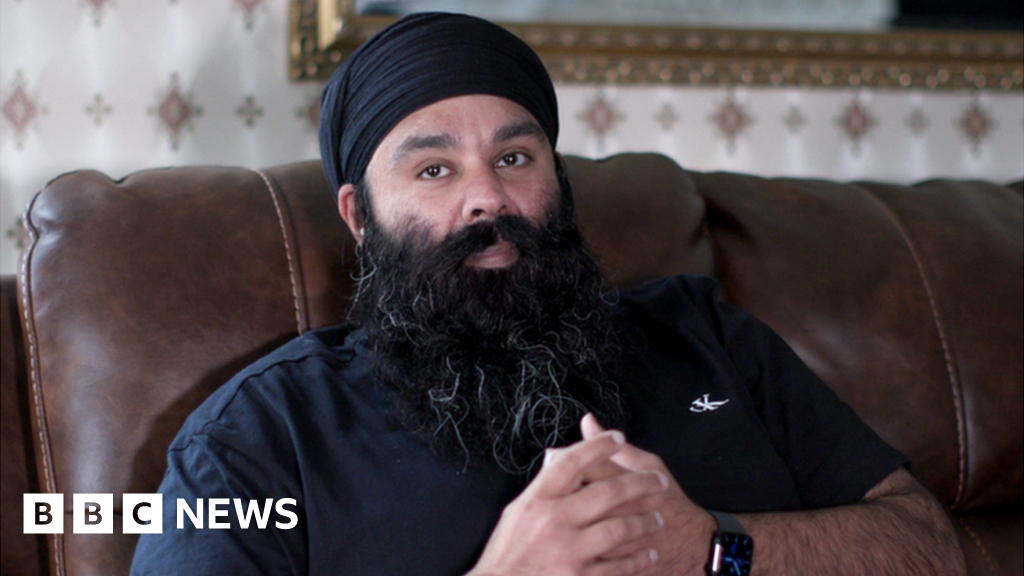

Canada-India row puts spotlight on Sikh activism in UK
Rumours swirl around the deaths of other Sikh activists, following Justin Trudeau's bombshell claim.
www.bbc.com
they're attacking christians too?...the west wont like that
Neither Biden nor Trump officials give a shyt about Indian Christians, it's just been "look the other way" cause they want India as a partner. Persecution of churches and Christian NGO's in India has been in fukking overdrive the last 8 years and no one cares. The Hindutva movement currently running India is explicitly anti-Christian, and yet you still see major US officials talking about what a great guy Modi is.

A Look At Recent Attacks Against Christians In India
Christians in India continue to face targeted attacks on their faith including threats to Christian gatherings, churches, and educational institutions
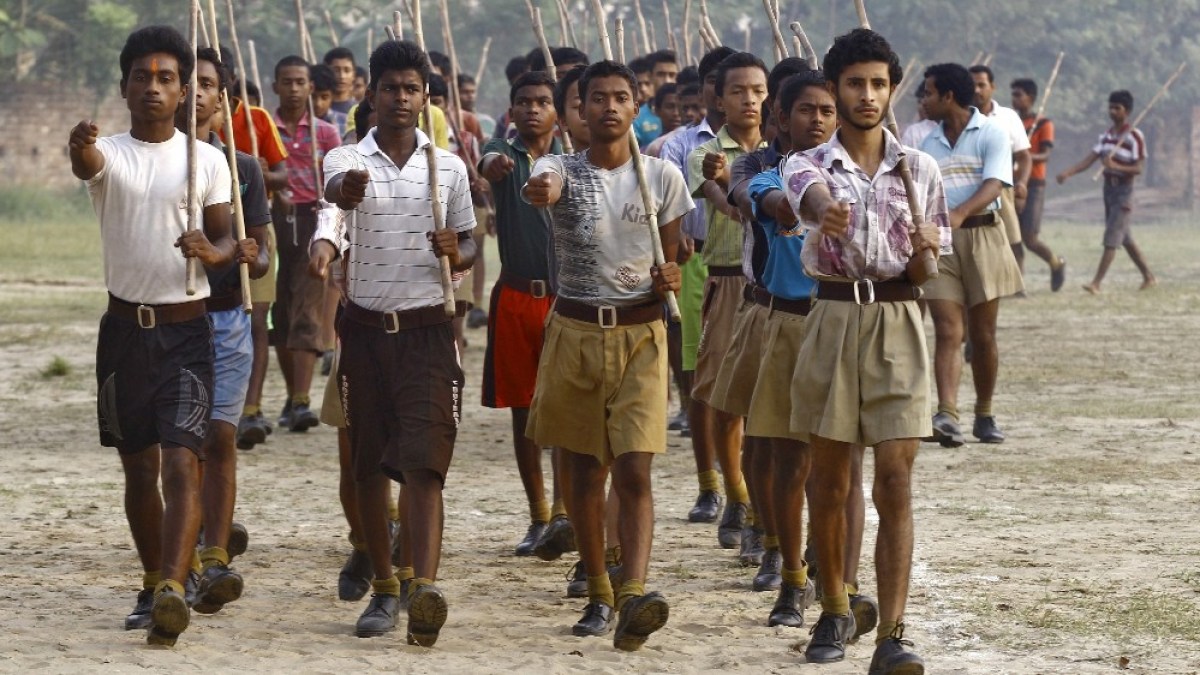
Why India is witnessing spike in attacks on Christians, churches
Rights groups record over 300 attacks on Christians and their religious places in the first nine months of this year.

After over 250 churches were burned in India, local religious leaders stage protest
IRVING — On May 3, Dallas resident Florence Lowe got an alarming text from her sister who lives in India’s Manipur state. “Have you talked to Mom,” the...
www.dallasnews.com

A Look At Recent Attacks Against Christians In India
Christians in India continue to face targeted attacks on their faith including threats to Christian gatherings, churches, and educational institutions

India's NGO crackdown forces U.S. Christian charity out after half a century
A Colorado-based Christian charity said on Friday it was ending its almost half-a-century-long operations in India after authorities restricted its funding channels over suspicions it supported religious conversions in the Hindu-majority country.

Major Christian Charity Is Closing India Operations Amid a Crackdown (Published 2017)
The group, Compassion International, which runs a “sponsor a child” program, is leaving India after 48 years amid pressure from the Modi government.
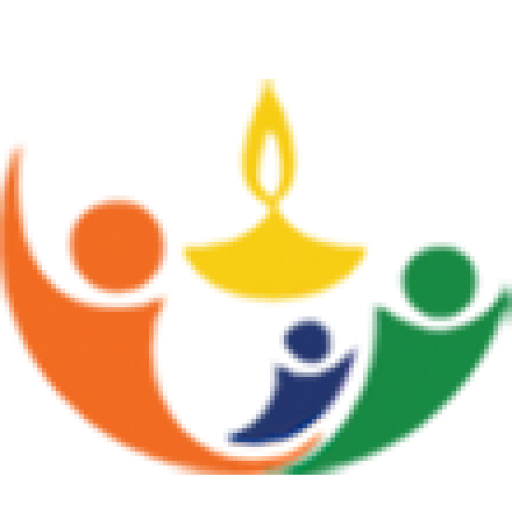
114-year-old Christian hospital in Uttar Pradesh faces harassment
By Matters India Reporter Fatehpur, March 10, 2023: A Christian hospital that has served a northern Indian city for more than a century faces closure after it became a victim of religious bigotry s…
 mattersindia.com
mattersindia.com

Indian Government Regulation Squeezes Christian Charities - Christianity Today
Nonprofit licenses revoked, leaving millions without help.
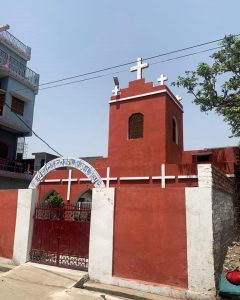
Pastor in India Kept in Jail on Baseless Charges, Christians Say - Morningstar News
A pastor in northern India remains in jail after nearly four months despite winning bail because Hindu extremists filed new false charges against him, his wife said.
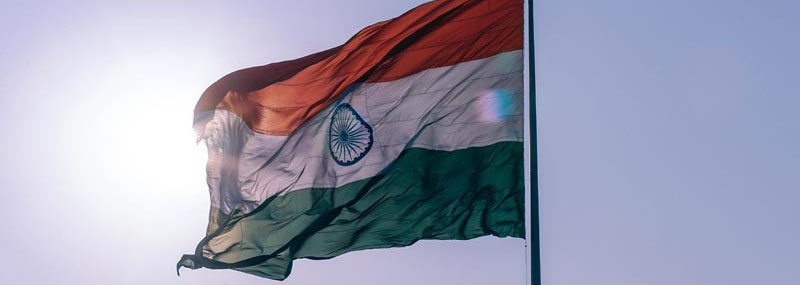
Indian Police Arrest Pastors and Newly Married Couple at Wedding Reception - International Christian Concern
Christian Persecution on the Rise in Uttar Pradesh, India 11/30/2022 India (International Christian Concern) – Nine Christian pastors were arrested and jailed on false charges of conversion activities in Azamgarh, in the North Indian state of Uttar Pradesh, on Monday. The pastors and a...
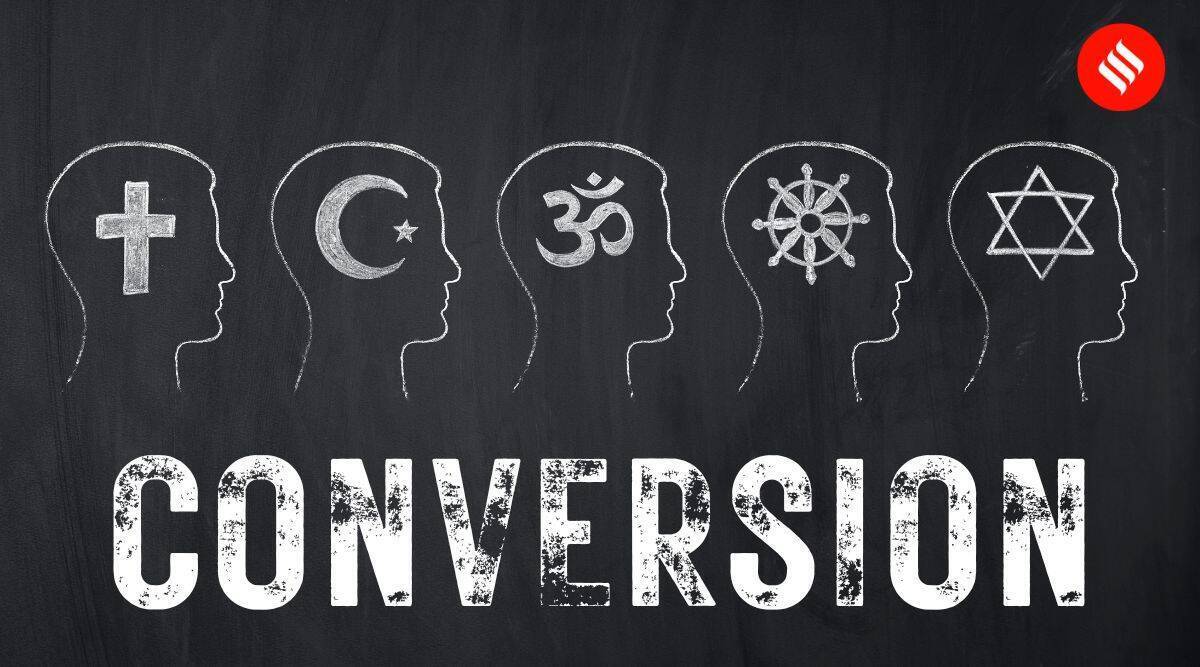
UP: Christian leaders allege false conversion cases and arrests, to approach Adityanath
The Christian community leaders point to an incident from February 12 in Jaunpur district, where 16 people were arrested in Muradpur Kotila village for allegedly luring others to convert to Christianity.

Uttar Pradesh, pastors arrested on conversion charges
Two more cases instigated by Hindu fundamentalists over simple prayer gatherings in Varanasi and Lakhimpur. Fr Pereira:

7 pastors arrested in India on false charges of forced conversions
Authorities in the northern Indian state of Uttar Pradesh arrested seven pastors at a prayer meeting under the state s anti-conversion law, which Christians have accused Hindu nationalists of using
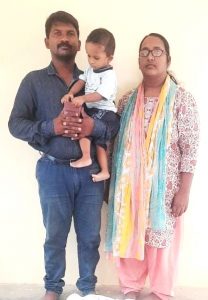
Hindu Extremists Jail Pastors, Close Churches in India - Morningstar News
Having spent a month in jail on baseless charges before his release on bail, Pastor R. Kirubendran was baffled at hostilities from police, media and villagers after serving a community in northern India without problem for several years.

India’s Christians living in fear as claims of ‘forced conversions’ swirl
Christians in Chhattisgarh say Hindu nationalist BJP has revived claims to tarnish reputation of rival Congress
/cloudfront-us-east-2.images.arcpublishing.com/reuters/7JFHNG7MFZNP5PO2CXZ64JGFHI.jpg)
Death of a 84-year-old Indian priest in custody stirs outcry
A top U.N. human rights official has deplored the death in custody of an 84-year-old Indian Christian priest who campaigned for the rights of tribal people and was denied bail after being detained under an anti-terrorism law.
They have actual laws on the books that allow virtually anyone to get a pastor arrested for "illegal conversions", but the same law says that converting people to Hinduism isn't illegal no matter what the circumstances because "All Indians were originally Hindu so they are just returning to their ancestral faith."
There are literally hundreds and hundreds of articles like this, but it isn't even being spoken about in international policy.
to be honest I dont know if I know any christian IndiansNeither Biden nor Trump officials give a shyt about Indian Christians, it's just been "look the other way" cause they want India as a partner. Persecution of churches and Christian NGO's in India has been in fukking overdrive the last 8 years and no one cares. The Hindutva movement currently running India is explicitly anti-Christian, and yet you still see major US officials talking about what a great guy Modi is.
to be honest I dont know if I know any christian Indians
There are 26,000,000 of them. That's about quadruple the # of American Jews, Hindus, Buddhists, and Muslims combined.
ADevilYouKhow
Rhyme Reason
Afghan embassy says it is stopping operations in Indian capital
India’s External Affairs Ministry says it's examining a letter from the Afghan Embassy that says it plans to cease all operations in the Indian capital by Saturday.

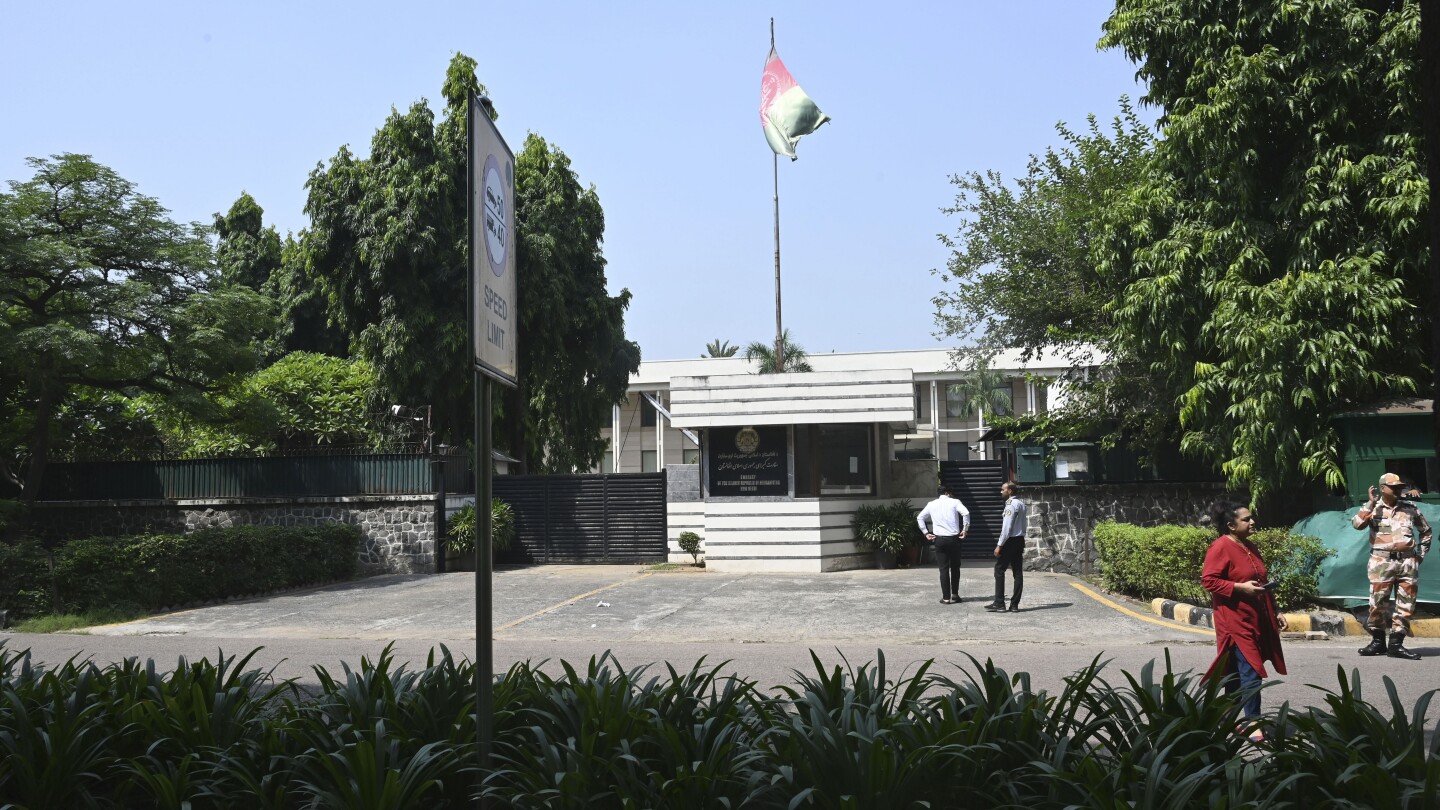
Afghan embassy says it is stopping operations in Indian capital
India’s External Affairs Ministry says it's examining a letter from the Afghan Embassy that says it plans to cease all operations in the Indian capital by Saturday.apnews.com

china has spoken?
ADevilYouKhow
Rhyme Reason
china has spoken?
Idk they were holdovers from previous government. Going to be wild when Afghanistan plunges that region into turmoil again but that’s what the regional powers wanted I guess. Idk if India even recognizes the Taliban the article vaguely mentions it
